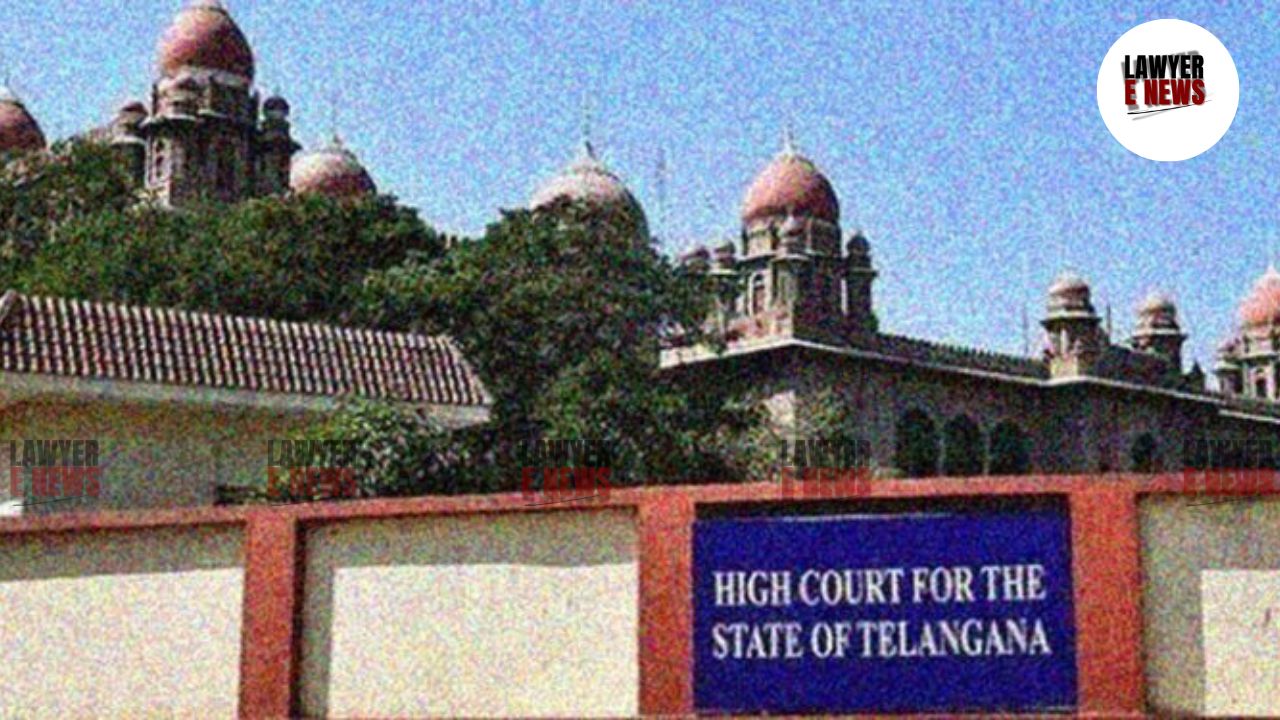-
by Admin
15 February 2026 5:35 AM



Hyderabad High Court, comprising Justices Moushumi Bhattacharya and Nagesh Bheemapaka, issued a pivotal ruling , condoning a 390-day delay in filing criminal appeals. The appeals were filed against an NIA Special Court order that extended the judicial remand of the accused under the Unlawful Activities (Prevention) Act (UAPA), 1967. This decision underscores the Court’s commitment to balancing procedural law with the fundamental rights to life and liberty under Article 21 of the Constitution.
The appellants, accused in a case registered under the UAPA, challenged the orders passed by the IV Additional Metropolitan Sessions Judge-cum-Special Court for NIA Cases, Hyderabad. These orders, dated February 27, 2023, extended their judicial remand and denied their request for default bail under Section 167(2) of the Criminal Procedure Code (CrPC). Due to a delay of 390 days in filing the appeals, the appellants sought condonation of the delay under Section 5 of the Limitation Act, 1963.
The central issue before the Court was whether the statutory time limit for filing an appeal under Section 21(5) of the National Investigation Agency (NIA) Act could be extended, particularly given the second proviso, which strictly limits appeals to a 90-day window.
The primary question was whether Section 5 of the Limitation Act, 1963, which allows courts to condone delays for sufficient cause, could be applied to Section 21(5) of the NIA Act. The second proviso to Section 21(5) prohibits entertaining appeals after 90 days, raising the question of whether this time limit was absolute or subject to judicial discretion.
Justice Bhattacharya's judgment took issue with the inconsistent stance taken by the NIA in similar cases. In earlier cases before the Jammu & Kashmir High Court and Chhattisgarh High Court, the NIA had argued that the timeline in Section 21(5) was directory, not mandatory, allowing for extensions. However, in the present case, the NIA opposed the extension of Section 21 of the NIA Act is an entity-neutral provision... The timeline must be applied equally, regardless of whether the appellant is an accused or the agency
The Court referred to multiple precedents, including Faizal Hasamali Mirza v. State of Maharashtra and Farhan Shaik v. NIA, which favored extending the appeal timeline, arguing that procedural rules should not override fundamental rights. The Court noted that Section 5 of the Limitation Act had not been explicitly excluded from the NIA Act, suggesting that courts retained the discretion to condone delays if justified by sufficient cause.
The Court acknowledged conflicting High Court rulings on whether the time limit under Section 21(5) of the NIA Act could be extended. Decisions like Nasir Ahmed v. NIA (Kerala High Court) strictly interpreted the 90-day limit, while others, including the Jammu & Kashmir and Chhattisgarh High Courts, took a more lenient view, allowing for the condonation of delays to preserve the right to appeal.
After a thorough review, the Court found that the appellants had shown sufficient cause for the delay in filing their appeals. The Court highlighted that the right to appeal is an integral part of the right to life and liberty under Article 21 of the Constitution and should not be denied on procedural grounds alone. The Court condoned the 390-day delay and allowed the appeals, with the caveat that its decision would be subject to any future ruling by the Supreme Court on this matter.
The Hyderabad High Court’s decision reinforces the principle that procedural technicalities should not obstruct the exercise of substantive rights, particularly the right to appeal. By allowing the appeals to proceed despite the significant delay, the Court upheld the fundamental principles of justice and fairness, ensuring that procedural rules do not become a barrier to accessing the courts.
Date of Decision: September 27, 2024
Shaik Mohammed Rizwan Akhtar VS State of Telangana
